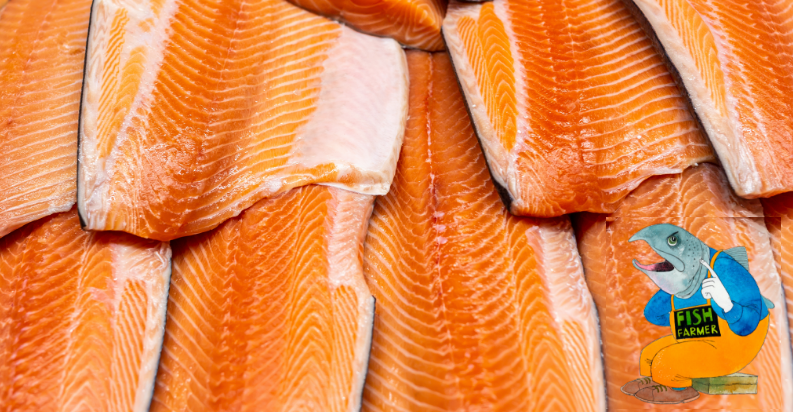What shall I talk about?

There’s hardly been any news about farming, so what on earth can I talk about? With French farmers dumping God knows what on their parliament and Brussels trying to fend them off the EU, there’s hardly anything interesting going on. Yet the media are finding it hard to cover. Occasionally they mention the green agenda but nobody in the mainstream press actually gets what is going on. This is about livelihoods, careers, families and most of all the loss of knowledge of the land. For those of us who have been in food production all of our lives, the idea that we would risk losing that knowledge is beyond imagination.
For us in aquaculture it seems so far away, and so unconnected to us, yet it may yet soon be. To understand better, we have to look back at how the farmers became trapped between a rock and a hard place. It is easy to look at them now and think: “Why can’t they just work themselves out of the situation like most businesses could. Why not drive more efficiency or more productivity? After all their market, like aquaculture’s, is assured.”
When rationing ended at the end of the Second World War, food was scarce, and a new government thought that anything was possible. Many different ways were tried to fix food prices or at least control the fluctuations. By the 1970s, price controls on bread, soap and many other staples were attempted. Such measures were bound to fail but farmers’ lives were played with in the process.
Subsidising farms was viewed as necessary to increase production. This succeeded, and though some like to call the farmers greedy for over-producing, why would anyone turn down the opportunity? The problem was that normal market mechanisms weren’t allowed to act. For us in aquaculture the periods of price collapse were salutary and led to restructuring for the industry, but in agriculture no such force came into play.
The other critical component for agriculture is that it is limited by size, not just because of the value of the asset but because the knowledge required of each field makes it much harder to deal in larger and larger farms. Land farming will always need local knowledge, passed from generation to generation.
Once we joined the EU, this all became much further entrenched as the farming groups in Europe are far more radical than those of the UK. In France, for instance, the typical farm size is quite small, and, without subsidy, these businesses could be wiped out very quickly. So they react strongly to any cuts in support.
The average age of farmers in this country is now around 59. Some suggest it is time for farmers to hang up their boots but in this lies another fundamental problem. Firstly, the farmers themselves have watched their incomes dwindle, so giving up is less easy. Then their children have watched their parents work every hour God sends to try to make a living while government experiments to see what works. Why would they want to do it?
There are many more subtle and complex facets to this issue, but the essential components are as described. So now add in the modern supposed “green” mantra. Farming has become about not producing food but trying to interpret the will of an increasingly dilletante government. Imagine trying to work out a business strategy based on a capricious market that changes its mind every three or four years.
So here we are, at the end of a long experiment with food producers and they have had enough. Oh sure the French are jumping up and down as usual but now even the mild-mannered Scots are going the same way.
Earlier I mentioned that it might one day come to our industry. Imagine a government which defined the price of salmon. We all know how hard it is to predict the challenges that face a salmon farm year on year. If government determined the price in the face of such variable cost, what chance would we have of survival?
In the end those who advocate producing less are Darwinian tree surgeons cutting off the limb that they are sitting on. We need food and we need the people who can make it happen. The problems only come when those in power are too distanced from where their food comes from.
Just in case you were getting hopeful, this is just the beginning…

